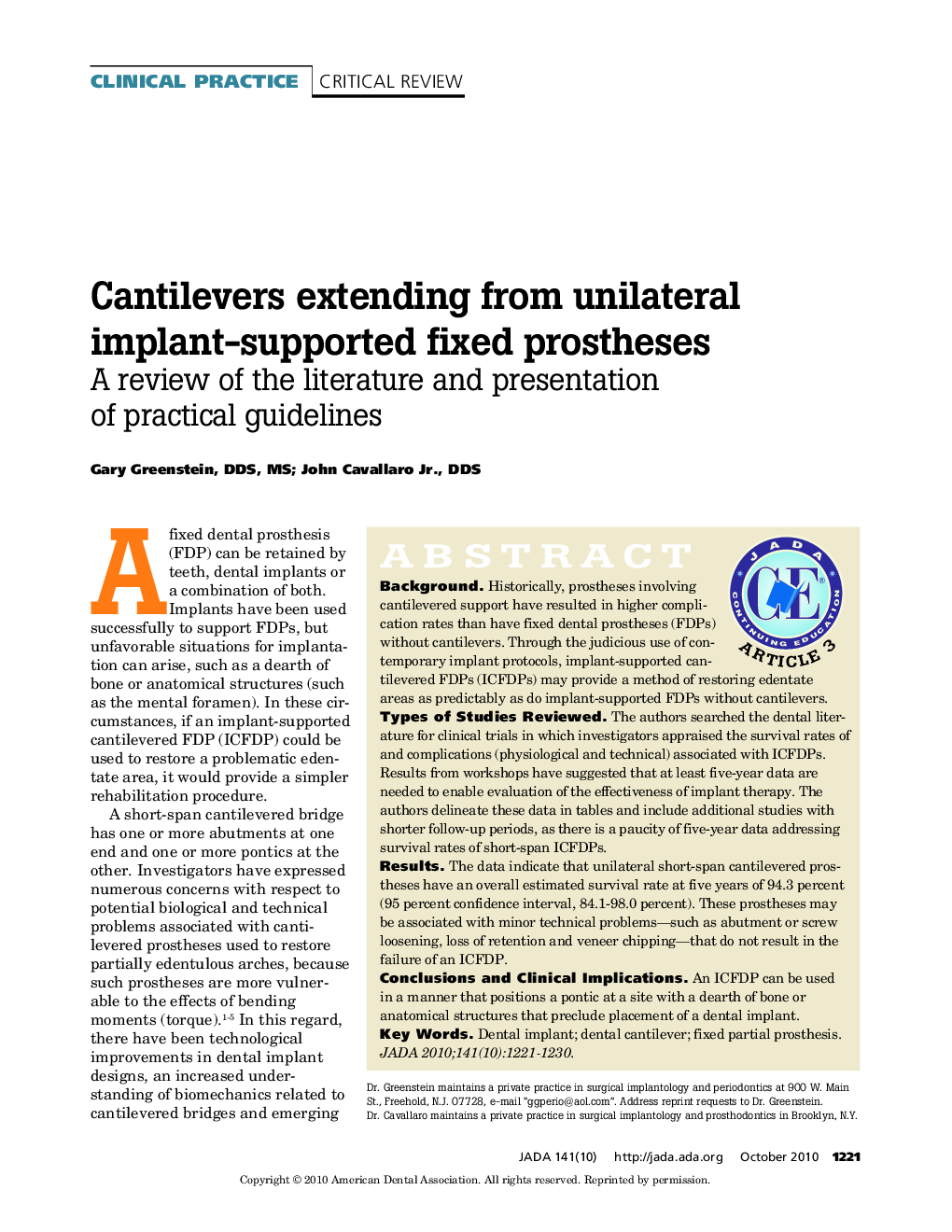| Article ID | Journal | Published Year | Pages | File Type |
|---|---|---|---|---|
| 3138510 | The Journal of the American Dental Association | 2010 | 10 Pages |
ABSTRACT BackgroundHistorically, prostheses involving cantilevered support have resulted in higher complication rates than have fixed dental prostheses (FDPs) without cantilevers. Through the judicious use of contemporary implant protocols, implant-supported cantilevered FDPs (ICFDPs) may provide a method of restoring edentate areas as predictably as do implant-supported FDPs without cantilevers.Types of Studies ReviewedThe authors searched the dental literature for clinical trials in which investigators appraised the survival rates of and complications (physiological and technical) associated with ICFDPs. Results from workshops have suggested that at least five-year data are needed to enable evaluation of the effectiveness of implant therapy. The authors delineate these data in tables and include additional studies with shorter follow-up periods, as there is a paucity of five-year data addressing survival rates of short-span ICFDPs.ResultsThe data indicate that unilateral short-span cantilevered prostheses have an overall estimated survival rate at five years of 94.3 percent (95 percent confidence interval, 84.1–98.0 percent). These prostheses may be associated with minor technical problems—such as abutment or screw loosening, loss of retention and veneer chipping—that do not result in the failure of an ICFDP.Conclusions and Clinical ImplicationsAn ICFDP can be used in a manner that positions a pontic at a site with a dearth of bone or anatomical structures that preclude placement of a dental implant.
